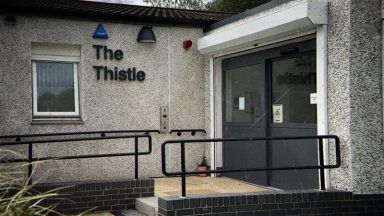A pilot scheme to resolve court cases early is to be rolled out across Scotland.
The summary case management pilot was launched in September 2022 at Dundee, Hamilton and Paisley sheriff courts before being expanded to Glasgow and Perth.
A new Scottish Courts and Tribunals Service (SCTS) report on the scheme found it has enabled cases to be solved before trial, cutting the number of police officers required to attend court as witnesses and reducing case backlogs.
The paper found more than 500 non-jury trials did not need to be fixed in the pilot courts over the 19-month period, and around 18,000 witnesses, including roughly 11,000 police officers, were not cited or recited to attend court unnecessarily.
If the scheme had been in place at a national level over the same period, the SCTS estimates around 3,300 trials would not have been fixed and a further 50,000 police officer citations would not have been issued.
Following the report on the initiative – which involves facilitating the early disclosure of evidence, early engagement between the Crown and defence, and early case management – SCTS said it will now be rolled out nationwide.
Sheriff principal Aisha Anwar, who led the pilot, said: “The findings from this final evaluation are very encouraging and provide good cause for optimism.
“The success of the pilot is attributable to the commitment of justice partners – including Police Scotland, the Crown and defence practitioners – who have worked with the judiciary to achieve a common goal.
“The initiative encourages early disclosure of evidence and prompt engagement between the Crown and the defence to allow solicitors and accused persons to assess and discuss the evidence from the outset of proceedings.
“Where appropriate, this results in early resolution, avoiding the need for complainers and witnesses to attend court.
“Where trials are necessary, these have been closely case managed by the judiciary; the evidence is focused and trials are shorter, helping to minimise the trauma, inconvenience and delay for complainers, witnesses and accused persons.”
Despite a higher than expected number of new cases registered with sheriff courts between 2023 and 2024, the number of scheduled summary trials at the pilot courts has reduced by 31%, compared to non-pilot courts which rose by 10%.
Justice Secretary Angela Constance said: “It is pleasing to see that this has been a very positive project and one worth rolling out.
“Alongside other projects, such as the world-leading Government initiative digital evidence sharing capability, which allows evidence to be collected, stored, processed and managed digitally, this will make a significant contribution to increasing the efficiency of the justice system and improving the experience of victims and witnesses.”
Malcolm Graham, chief executive of the SCTS, added: “The success of the summary case management pilot has been driven by strong collaboration among justice partners, and it is important that we continue that partnership as we look to expand the initiative across Scotland.
“The report is clear that victims and witnesses are benefiting from an improved experience and early resolution of cases, while justice partners are seeing significant efficiencies both in the justice system overall and their individual operations.
“SCTS is committed to providing an effective and efficient court and tribunal system for all, and summary case management is just one example within our programme of reforms designed to improve the experience of those who use the justice system.”
The initiative was also welcomed by other organisations, including domestic abuse advocacy service Assist’s Dundee branch.
Lynn MacDonald of Assist said: “Dundee Assist feel that the pilot has been really positive for victims of domestic abuse.
“It has been clear to see that the timescales for cases coming to conclusion is shorter than before, which is a huge positive for our clients given the emotional and mental strain the process can cause.”
Police Scotland Assistant Chief Constable Wendy Middleton said: “In addition to the obvious benefits to victims, Police Scotland is seeing a reduction of first issue citations for domestic abuse cases by up to 34% in all pilot courts, which equates to around 5,000 citations not being served on operational officers.
“This reduction is welcomed by Police Scotland as more officers are available to deliver a policing service in local communities. It also ensures that officers can be rested appropriately, ensuring that they remain fit and well to continue to deliver an effective service.”
Deputy Crown agent Jennifer Harrower added: “The initiative radically improves the experience of victims and witnesses of crime and introduces a new approach to how we communicate with victims of domestic abuse.”
Follow STV News on WhatsApp
Scan the QR code on your mobile device for all the latest news from around the country
























